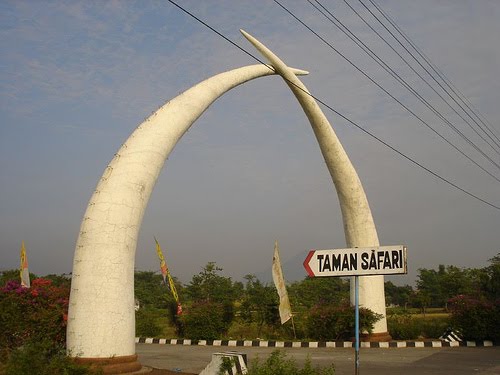Onrust island
Named after the Dutch word which means without a break, Onrust Island plays an important role in the history of Batavia. In the 16th century, this island is the resting place of the kings of Banten. Once the Dutch arrived, the island is used as an asset in order to strengthen their occupation.
The function of the island is constantly changing according to political conditionsJakarta - which also constantly changing. Noted, the island was once a wharf, fort,ammunition dump, to the sawmills and workshops for damaged ships.

Onrust island is not really friendly to the explorers. Hot tropical weather and the condition of heavily wooded island is one of the reasons. Not surprisingly, there is a myth that the inhabitants of this island will die young.
A medical book written by Thomas and George Underwood in 1827 describes theexpedition of the British royal troops to Batavia in August 1800. Mentioned, there are 12 army regiments (127 personnel) who landed on the island of Onrust in good health.Due to a mysterious illness, only 62 were returned. The rest were killed without a chance to fight.
Myths die young is also strengthened by the ruins of the Dutch cemetery at the end of the island. Some graves are still intact show, the residents died before the age of 30 years. In Johanna's gravestone Kalf, wife of the ruler, instead writing that he died at the age of 25 years.

Since the 16th century, the island was built, destroyed, rebuilt, then destroyeduninhabited. At the time of independence, the island was used as a quarantineinfectious disease. Since the 1970's, the island was neglected. The building wasdismantled and the remaining debris.
Now there's only remaining foundations of the ancient fortress, as well as dormitoriespilgrimage of late occupation of the Netherlands.
Tombs, ruins and shadows of the trees that grow fast to make this island appeareddark atmosphere. History is full of twists that ultimately stored in the silence of the ruins and trees.
Named after the Dutch word which means without a break, Onrust Island plays an important role in the history of Batavia. In the 16th century, this island is the resting place of the kings of Banten. Once the Dutch arrived, the island is used as an asset in order to strengthen their occupation.
The function of the island is constantly changing according to political conditionsJakarta - which also constantly changing. Noted, the island was once a wharf, fort,ammunition dump, to the sawmills and workshops for damaged ships.
A medical book written by Thomas and George Underwood in 1827 describes theexpedition of the British royal troops to Batavia in August 1800. Mentioned, there are 12 army regiments (127 personnel) who landed on the island of Onrust in good health.Due to a mysterious illness, only 62 were returned. The rest were killed without a chance to fight.
Myths die young is also strengthened by the ruins of the Dutch cemetery at the end of the island. Some graves are still intact show, the residents died before the age of 30 years. In Johanna's gravestone Kalf, wife of the ruler, instead writing that he died at the age of 25 years.
Now there's only remaining foundations of the ancient fortress, as well as dormitoriespilgrimage of late occupation of the Netherlands.
Tombs, ruins and shadows of the trees that grow fast to make this island appeareddark atmosphere. History is full of twists that ultimately stored in the silence of the ruins and trees.




